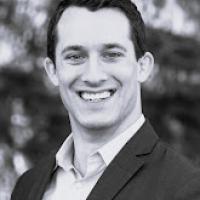Tyler Hall is challenging incumbent Joshua Binda for Lynnwood City Council, Position 3. Hall has had an expansive career spanning from the service industry to law and technology. He has a JD from the UW School of Law and has since worked in environmental legislation and handling criminal appeals for the Snohomish County Prosecutor.
Hall's campaign is taking a more progressive approach to the issues facing Lynnwood, such as affordable housing and climate change. Hall is supportive of a range of housing options, from apartments to single-family units. He is prioritizing investing in climate change adaptation and disaster preparedness. He is also supportive of increasing walkability and transit infrastructure as a means of climate change mitigation and increased community connectivity. Hall also explicitly called for the protection of diversity, equity, and inclusion programs. Additionally, he hopes to improve resources for people facing addiction and mental health challenges, focusing on rehabilitation rather than criminalization.
Unfortunately, Hall's approach to policing leans more conservative. Hall said he would "push for Lynnwood police and our criminal prosecutors" to "deter criminal behavior, isolate and rehabilitate dangerous actors," later adding plans for alternative policing, such as unarmed de-escalation and crisis responders.
Overall, Tyler Hall is running a progressive-leaning campaign for Lynnwood City Council and would make a good choice for voters looking for a candidate with more legal and policy experience.
Tyler Hall is challenging incumbent Joshua Binda for Lynnwood City Council, Position 3. Hall has had an expansive career spanning from the service industry to law and technology. He has a JD from the UW School of Law and has since worked in environmental legislation and handling criminal appeals for the Snohomish County Prosecutor.
Hall's campaign is taking a more progressive approach to the issues facing Lynnwood, such as affordable housing and climate change. Hall is supportive of a range of housing options, from apartments to single-family units. He is prioritizing investing in climate change adaptation and disaster preparedness. He is also supportive of increasing walkability and transit infrastructure as a means of climate change mitigation and increased community connectivity. Hall also explicitly called for the protection of diversity, equity, and inclusion programs. Additionally, he hopes to improve resources for people facing addiction and mental health challenges, focusing on rehabilitation rather than criminalization.
Unfortunately, Hall's approach to policing leans more conservative. Hall said he would "push for Lynnwood police and our criminal prosecutors" to "deter criminal behavior, isolate and rehabilitate dangerous actors," later adding plans for alternative policing, such as unarmed de-escalation and crisis responders.
Overall, Tyler Hall is running a progressive-leaning campaign for Lynnwood City Council and would make a good choice for voters looking for a candidate with more legal and policy experience.



